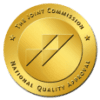Opioid detox in Tennessee is often the first real pause someone gets after months or years of chasing relief, avoiding withdrawal, and promising themselves they will stop tomorrow.
If you’re reading this, there’s a good chance you’re not wondering whether opioids are a problem. You’re wondering how to get through the withdrawal without falling apart, and how to do it in a way that does not send you right back to using.
Detox is not about willpower. It is about getting your body through a brutal adjustment period safely, with support, and with a plan for what comes next. A lot of people can make it a day or two on their own, then the symptoms ramp up, and the fear takes over. That’s why an opioid detox center in Tennessee option can matter. You’re not trying to white-knuckle it in the same environment that helped keep the cycle going.
You may also see people use the word opiates. If you’ve been searching for opiate detox in Tennessee or an opiate detox center in Tennessee, you’re in the same place clinically. The goal is to stabilize, reduce suffering, and lower the risk of relapse when withdrawal peaks.
One more thing that needs to be said plainly. Detox can lower your tolerance fast. If you return to use afterward, the amount you used before can become dangerously high. That’s why a good plan includes detox, plus a clear next step for treatment and support.
What Are Opioids?
Opioids are drugs that act on opioid receptors in the brain and body, which can reduce pain and also create a sense of relief, calm, or numbness. [1] That relief is part of why they can be so hard to stop.
Over time, the body adjusts and starts to rely on opioids just to feel normal. When the opioids are taken away, the nervous system reacts fast.
Opioids include prescription pain medications, like oxycodone and hydrocodone, as well as medications used in opioid use disorder treatment, like methadone and buprenorphine.
Opioids also include heroin and fentanyl. Fentanyl is especially important to mention because it’s often present in the drug supply, sometimes without someone realizing it, including in counterfeit pills that look like prescription medication.
People use the terms opioids and opiates interchangeably. Technically, opiates are made from the opium poppy, while opioids is the broader category that includes natural and synthetic drugs.
In real life, that distinction rarely changes what someone needs. Whether it started with surgery, an injury, chronic pain, or recreational use, the detox process is still about managing withdrawal and stabilizing safely.
This is why prescription opioid detox in Tennessee exists as a real need. Plenty of people don’t fit the stereotype they have in their head. They took medication for pain, tolerance built, doses crept up, then stopping suddenly felt impossible.
Others end up needing heroin detox Tennessee services after a shift from pills to heroin or fentanyl when pills became harder to access. The path in isn’t the point. The priority now is getting you safely through the first stretch so you can move into real recovery support.
Are Opioids Addictive?
Yes. Opioids can be addictive, and they can also create physical dependence faster than most people expect. [2] That includes prescription pain pills, fentanyl, and heroin.
Here’s what usually happens. At first, opioids may feel like relief, pain relief, emotional relief, or both. Then tolerance builds. The same amount does not hit the same, so use creeps up. Over time, the body starts to rely on opioids just to function normally. If you stop or even cut back, withdrawal symptoms show up.
It also helps to separate two terms people mix together:
- Dependence means your body reacts when opioids aren’t there. You feel sick, restless, and anxious, and you may use again just to make the symptoms stop.
- Addiction, often called opioid use disorder, is when opioid use becomes compulsive even when it’s clearly causing harm. It starts affecting your health, work, relationships, finances, and safety.
A lot of people end up needing opioid detox Tennessee support because they are trapped between two fears. They hate what opioids are doing to their life, and they are terrified of withdrawal.
That fear is real, and it is one reason doing drug detox opioid Tennessee alone often falls apart. When the symptoms hit, your brain is not thinking about long-term goals; it’s thinking about immediate relief.
If you’re stuck in that cycle, it doesn’t mean you’re weak. It means your body and brain have adapted to opioids, and stopping needs to be handled like a medical and behavioral health problem, not a motivation problem.
Opioid Withdrawal Symptoms and Timeline
Withdrawal is the part most people dread, and for good reason. Opioid withdrawal can feel like a very bad flu, with anxiety on top of it. It’s miserable, and it can feel endless in the moment.
The details vary depending on what you have been using, how long you have been using, and whether fentanyl exposure is part of the picture. But the pattern is predictable enough that you can plan for it, and that’s the point of opioid withdrawal detox Tennessee care.
- Common opioid withdrawal symptoms
People talk about withdrawal as if it’s one symptom. It’s not. It’s a stack of symptoms that hit in waves. Early symptoms often include agitation, anxiety, muscle aches, sweating, runny nose, tearing, insomnia, and yawning. Later symptoms can include stomach cramps, diarrhea, nausea, vomiting, and goosebumps.
Even when withdrawal is not usually life-threatening, it can still become dangerous if you get severely dehydrated from vomiting or diarrhea, can’t sleep for days, or have other medical issues happening at the same time. It’s also a high-risk moment for relapse, because the fastest way to stop symptoms is to use again.
- Withdrawal timeline, what to expect
There isn’t one perfect timeline that fits everyone, but there are reliable ranges.
For heroin and other short-acting opioids, symptoms can start within hours. MedlinePlus notes symptoms usually start within about 12 hours after the last heroin use. A clinical guideline summary published through NCBI describes short-acting opioid withdrawal onset around 8 to 24 hours, with a duration commonly around 4 to 10 days. [3]
For long-acting opioids, symptoms may take longer to kick in and can last longer. MedlinePlus notes symptoms can start within about 30 hours after the last methadone exposure. [4] The NCBI guideline summary describes long-acting opioid withdrawal onset around 12 to 48 hours, with a duration commonly around 10 to 20 days.
The easiest way to think about this is that withdrawal usually ramps up, peaks, and then slowly loosens its grip. People often feel the worst physical symptoms in the first few days, then deal with lingering sleep issues, low mood, and cravings after that.
Those lingering symptoms are a big reason planning what comes after detox matters.
- Why medication timing matters
One reason medical supervision helps is that opioid detox is not only about comfort. It’s also about timing and safety.
For example, buprenorphine can trigger precipitated withdrawal if it’s taken too soon after other opioids, because it has a high affinity for opioid receptors and can push other opioids off them.
In a supervised setting, medication decisions are based on your symptoms and timing, not guesswork.
- Why detox is a high-risk moment
This is the part many people don’t hear enough: detox lowers tolerance quickly. If someone detoxes and then returns to use, the amount they used before can overwhelm their body. That’s why heroin detox Tennessee planning and prescription opioid detox planning should always include what comes next, not just how to survive withdrawal.
Detox is step one. The safest detox is the one that ends with a real plan for ongoing treatment and support, because that is what protects people when cravings come back, and life gets stressful again.
Signs You May Need Opioids Detox
Most people don’t wake up and decide to look for opioid detox Tennessee support on a random Tuesday. They usually get there after they have tried to cut back, tried to stop, or promised themselves they would handle it at home, and then withdrawal or cravings took over.
You might need an opioid detox center in Tennessee option if any of this feels familiar.
Your body is dependent, even if you don’t want to call it addiction
If you start to feel sick between doses, that’s a big red flag. People often describe it as flu-like symptoms, anxiety, sweating, stomach issues, restless legs, or a crawling feeling under the skin. A lot of the time, the main reason you keep using is not to get high, it’s to stop feeling awful.
You’re using just to feel normal
When the goal becomes “get back to baseline,” you’re usually past the point where quitting is just a decision. That is when opioid withdrawal detox Tennessee support can make the process safer and more manageable.
You’ve tried to stop, and the symptoms keep pulling you back
If you’ve made it a day or two and then used again because you couldn’t stand the symptoms, you’re not failing. You’re running into how opioid withdrawal works. Detox helps because you’re not trying to power through the worst part alone.
You don’t know what’s in what you’re taking
This comes up a lot with counterfeit pills and with street drugs. If fentanyl might be involved, withdrawal can be unpredictable, and relapse risk can be higher. If you’re not sure what you’ve been exposed to, that’s one more reason to choose medical support.
You’re mixing opioids with other substances
Alcohol, benzodiazepines, sleep meds, and stimulants can complicate withdrawal and raise safety risk. This is one of the clearest signs that detox shouldn’t be a solo project.
Your life is shrinking around opioids
You’re canceling plans, hiding use, running out of money, dodging people, or feeling like you’re constantly putting out fires. Even if you’re still holding it together on the outside, if opioids are running the schedule, it’s time to get help.
You don’t have a safe place to detox
A stable home, supportive people, and low access to substances make a difference. If your environment makes it easy to use and hard to rest, an opioid detox center Tennessee setting can give you the separation you need to get through the first stretch.
If you are ever dealing with severe dehydration, confusion, fainting, chest pain, or you can’t keep fluids down, treat that as urgent. Withdrawal can feel unbearable, and you don’t have to prove anything by suffering through it alone.
What Happens During Opioids Detox in Tennessee?
Detox shouldn’t feel like a mystery. A good program makes the process predictable, so you know what’s happening and why. Here is what typically happens during opioid detox in Tennessee when it’s done with medical support.
Intake and assessment
It starts with a full assessment, not a quick checklist. The team will ask what you’ve been using, how often, how long, and what withdrawal has been like for you in the past. They will also look at medical history, mental health symptoms, and any substances you might be mixing.
This isn’t about judging you. It’s about building the safest plan.
This is also where someone can be guided toward the right setting, which might mean inpatient opioid detox in Tennessee for higher-risk cases, or a more flexible plan when someone is medically stable and has strong support.
Stabilization and monitoring
As withdrawal starts, the focus is stabilization. That usually includes monitoring symptoms, checking vital signs, supporting hydration, and addressing the common things that make withdrawal spiral, like sleeplessness, panic, nausea, and dehydration.
The goal is to reduce suffering and keep you medically safe while your body adjusts.
Symptom relief and medication planning
Detox is not one-size-fits-all. Some people benefit from medication support to reduce withdrawal intensity and cravings. Others may use comfort medications to help with sleep, nausea, anxiety, and blood pressure shifts. This is where medication-assisted opioid detox in Tennessee can be part of the plan, when it’s clinically appropriate.
Detox should also include clear communication. You should understand what you’re being offered, what it’s for, and the next steps.
Support for the mental side of withdrawal
People often underestimate the mental side, the restlessness, dread, irritability, and emotional crashing. Even when physical symptoms ease, cravings can surge. A solid detox process includes emotional support, coping tools you can use in the moment, and a plan for what you will do when your brain starts bargaining.
Detox to treatment planning, before you’re discharged
This is where many detox experiences fall short. If someone finishes detox and goes right back to the same environment with no structure, relapse risk goes up fast. That is why detox-to-rehab transition Tennessee planning should start while you’re still in detox, not on the day you leave.
A strong discharge plan should answer simple questions:
- What level of care makes sense next, residential, inpatient, or outpatient?
- What supports are in place for cravings and triggers?
- What happens if you slip?
- How is follow-up care arranged?
This is the bridge from detox to treatment in Tennessee, and it matters just as much as the detox itself. Detox gets you through withdrawal. Treatment is what helps you stay out of the cycle.

Medications Used During Opioid Detox
A lot of people picture detox as something you just have to suffer through.
The reality is that medical detox is often about getting symptoms down to a level where you can sleep, keep fluids down, and think clearly enough to make decisions. The right medication plan can make the difference between making it through withdrawal and tapping out halfway through.
It also helps to know that two buckets of medications often come up during opioid detox in Tennessee. One bucket is focused on withdrawal relief, meaning symptom management.
The other bucket is focused on treating opioid use disorder longer term, meaning reducing cravings and lowering overdose risk after detox. The second bucket matters because detox alone isn’t treatment, and the risk of relapse can spike when people leave detox without ongoing support.
Medication-assisted opioid detox in Tennessee, what that usually means
When people say medication-assisted opioid detox in Tennessee, they’re usually talking about using FDA-approved medications for opioid use disorder, most often buprenorphine or methadone, sometimes transitioning to naltrexone later, plus other medications that address specific symptoms like nausea or insomnia. [5]
The goal is not to “knock you out.” The goal is to reduce withdrawal intensity and cravings so you can stabilize and actually engage in the next step of treatment.
Buprenorphine
Buprenorphine is a medication that can reduce withdrawal symptoms and cravings. You’ll often hear about it as Suboxone, which is buprenorphine combined with naloxone, but the core medication is buprenorphine.
One thing people do not always realize is that timing matters. If buprenorphine is started too soon after other opioids, it can trigger a sudden worsening of symptoms, which clinicians call precipitated withdrawal.
This is one reason medically supervised detox can be safer, because dosing decisions are based on symptoms and timing, not guesswork.
Methadone
Methadone is another FDA-approved medication used for opioid use disorder. It can relieve withdrawal and reduce cravings, but it is typically dispensed through regulated opioid treatment programs.
For some people, methadone is the right fit because it provides steady symptom control and helps reduce the chaos that keeps driving opioid use.
The exact plan depends on your history, what you have been using, and what you are trying to transition into after detox.
Naltrexone
Naltrexone works differently. It blocks opioid effects rather than activating opioid receptors. That can be helpful for some people, but it typically requires being fully off opioids first. Starting it too early can cause sudden withdrawal.
This is why naltrexone is often discussed as a next step after detox, not something used for immediate withdrawal relief.
Medications that target specific withdrawal symptoms
Even when someone is using buprenorphine or methadone, clinicians may also use medications that target specific symptoms so you can function.
Examples include medications that help with:
- Sweating, chills, and rapid heart rate
- Nausea, vomiting, and stomach cramps
- Diarrhea and dehydration risk
- Sleep disruption and agitation
- Muscle aches and restlessness
Alpha 2 adrenergic agonists such as lofexidine or clonidine are commonly discussed for withdrawal symptom relief. However, methadone and buprenorphine are generally considered more effective for reducing withdrawal symptoms and keeping people in care.
Whether someone is coming in for prescription opioid detox in Tennessee or heroin detox Tennessee, symptom relief and craving control are still the priorities.
What changes is the individual plan, based on the specific opioid involved, exposure to fentanyl, and overall medical and mental health needs.
Rapid opioid detox in Tennessee, what to know before you trust the marketing
You may see ads for rapid opioid detox in Tennessee, sometimes described as detox under heavy sedation or anesthesia.
Be cautious. The CDC has reported deaths and severe adverse events associated with anesthesia-assisted rapid opioid detoxification. [6]
If you’re considering anything marketed as rapid detox, ask direct questions about safety, medical monitoring, complication rates, and what the follow-up treatment plan is. A safer, more evidence-based approach usually prioritizes stabilization, symptom relief, and a clear transition to ongoing treatment.
Levels of Care, Dual Diagnosis, and Opioid-Specific Treatment Options
Where detox happens matters, not because one setting is “better,” but because opioid withdrawal can hit hard and relapse risk can be high if you return to the same triggers with no structure.
The right level of care is the one that matches your withdrawal risk, your home environment, and your ability to stay connected to treatment after detox.
Inpatient opioid detox in Tennessee
Inpatient opioid detox in Tennessee usually means you are staying in a medically supervised setting with monitoring and support available around the clock. This level of care often makes sense when:
- You have been using daily or heavily
- You have a history of relapse during withdrawal.
- You are mixing opioids with alcohol, benzodiazepines, or other drugs.
- Your home environment is unstable or not safe for detox.
- Mental health symptoms are intense, including panic, depression, or suicidal thoughts.
Inpatient detox is not only about comfort. It is about safety, timing, and reducing the likelihood that withdrawal leads to a quick return to use.
Residential opioid detox in Tennessee
Residential opioid detox in Tennessee is often described in similar terms, but usually with a more home-like setting and a stronger emphasis on early recovery structure.
For a lot of people, the biggest benefit is separation, getting out of the environment where using is easiest, and into a place where the only job is getting stable.
This can be especially helpful for people who know they will struggle if they detox and then immediately go back to the same access, the same stress, and the same routines.

Outpatient opioid detox in Tennessee
Outpatient opioid detox in Tennessee can work for some people, but it is not a casual option. It generally fits best when you’re medically stable, have reliable transportation, have a safe place to stay, and can follow a clear plan with close follow-up.
Outpatient detox may involve frequent check-ins and may include starting medication support in an office-based setting, depending on the provider.
The key is having real guardrails, not just good intentions. If your home environment is chaotic or your relapse risk is high, outpatient detox can be a tough setup.

Detox to rehab transition Tennessee, what should happen next
Detox is step one. What protects recovery is what happens after. A strong plan does not wait until discharge day to figure this out.
A practical detox to rehab transition Tennessee plan might include a step down into:
- Residential treatment focused on opioid recovery
- Partial hospitalization, when more daily structure is still needed
- An opioids IOP, which is an intensive outpatient program tailored to opioid use disorder needs
- An opioid outpatient program for ongoing therapy, medication management when appropriate, and relapse prevention support
This is what people usually mean when they search detox to treatment in Tennessee. They’re not just trying to survive withdrawal. They’re trying to stay out of the cycle.

Dual diagnosis and co-occurring disorders in opioid recovery
Opioid use and mental health symptoms commonly overlap. Anxiety, depression, trauma, and PTSD can fuel opioid use, and withdrawal can make those symptoms feel louder at first.
If mental health is part of the picture, it needs to be treated as part of the plan, not treated as “later.”
SAMHSA describes co-occurring disorders as the presence of both a mental health disorder and a substance use disorder, and notes that integrated care is recommended. [7]
This matters in opioid recovery because the trigger is not always a craving. Sometimes it’s a panic spike, insomnia, grief, shame, or trauma symptoms that have been numbed for a long time.
If that is ignored, people often end up right back at opioids for relief, even when they truly want to stop.
If you’re comparing the best opioid detox centers in Tennessee, one of the clearest signs of quality is that they screen for mental health, address it directly, and build a real treatment path after detox rather than sending people home with nothing but a handshake.
How to Find the Best Opioid Detox Centers in Tennessee
When people search for the best opioid detox centers in Tennessee, they’re usually not looking for fancy language. They want two things: safe relief and a plan that doesn’t fall apart the minute they leave.
Here is what actually separates a solid opioid detox center Tennessee option from a place that just gets you through a few rough days.
-
They can explain the medical plan without dodging
Ask what withdrawal support looks like hour by hour. Who’s monitoring you? How do they handle nausea, dehydration, insomnia, panic, and blood pressure swings? If the answers are vague, that’s a problem. -
They offer real medication options when appropriate
There’s a big difference between “comfort meds only” and a plan that includes medications proven to help with opioid use disorder. National guidance consistently points to medications like buprenorphine, methadone, and naltrexone as effective treatment options. If you are looking for medication-assisted opioid detox in Tennessee, ask directly which medications are available and how the team decides what fits you. -
They treat detox like step one, not the whole solution
Detox is important, but it is not the finish line. The best programs build a discharge plan early, before you are feeling better and ready to leave. That plan should cover cravings, relapse prevention, and what happens next in treatment. This is also where “top opiate detox Tennessee” searches really land. People want a clear, realistic detox-to-rehab transition plan in Tennessee. -
They help reduce overdose risk after detox
This matters more than most people realize. Tolerance can drop quickly, which makes return to use much more dangerous. A quality program should talk openly about risk and help you plan around it.
Why Choose Tennessee Detox Center for Opioid Detox
Detox is a vulnerable moment. People are uncomfortable, sleep-deprived, emotional, and usually scared. Tennessee Detox Center is built around one priority during that window: helping patients safely get through withdrawal with close medical support and a plan that doesn’t stop at discharge.
Here’s what that looks like in practice.








Begin Opioid Detox in Tennessee Today
If you are ready for opioid detox in Tennessee, try not to overcomplicate the first step. Start with an honest assessment. Tell them what you have been using, how often, and what withdrawal has been like for you before.
You don’t need the perfect words, and you don’t need to have the entire plan figured out on your own.
If you are feeling stuck or you need help finding treatment options right away, SAMHSA’s National Helpline is a free, confidential resource that can point you toward services.
The goal is simple: get through withdrawal safely, then move straight into the next level of care that protects your recovery. That might be inpatient, residential, or outpatient support, but the best plan is the one that keeps you connected when symptoms ease and cravings come back.
If you’re comparing the best opioid detox Tennessee options, ask one question that cuts through everything: “What’s the plan for the first week after detox?” The right program will answer that clearly.
Frequently Asked Questions About Opioid Detox in Tennessee.
This is where recovery either gets protected or gets shaky. Detox gets opioids out of your system, but it does not teach your brain how to handle stress, triggers, sleep problems, or cravings. The CDC is clear that detoxification on its own, without medications for opioid use disorder and ongoing care, is not recommended.
A strong detox-to-treatment plan in Tennessee plan might mean stepping into residential care, partial hospitalization, an opioid focused IOP, or outpatient support, depending on what’s realistic and safe. That detox-to-rehab transition Tennessee piece isn’t extra; it’s the whole point.
The experience can be similar, but the details can vary. With prescription opioids, people sometimes have longer use histories tied to pain, and they may be tapering from a steady dose. With heroin, and especially with fentanyl exposure, withdrawal can feel more unpredictable. Either way, the goal is the same: manage opioid withdrawal safely, reduce cravings, and set up the next step so detox is not the only support you get.
It comes down to structure and risk. Inpatient opioid detox in Tennessee typically means round-the-clock medical monitoring, which can be the right fit when symptoms are severe, relapse risk is high, or the home environment is not safe. Residential opioid detox in Tennessee usually adds a more structured recovery setting while you stabilize. Outpatient opioid detox in Tennessee can work when someone is medically stable, has a supportive living situation, and can show up consistently for care. The best level is the one that matches your real life, not the one that sounds easiest.
“Rapid detox” is a marketing term that can mean different things, so you have to ask what they’re actually doing. One version is anesthesia-assisted rapid opioid detoxification. The CDC reported deaths and severe adverse events tied to that approach.
If someone is considering anything labeled rapid detox in Tennessee, it is reasonable to ask blunt questions about monitoring, complication rates, and the follow-up treatment plan. The goal is not speed. The goal is getting through withdrawal safely and staying alive afterward.
Medication-assisted opioid detox in Tennessee usually means using medications that reduce withdrawal symptoms and cravings so you can stabilize and actually move forward. The CDC lists FDA-approved medications for opioid use disorder as buprenorphine, methadone, and naltrexone.
Some people try, and some make it through, but it’s a tough setup. At home, the two biggest problems are access and panic. When symptoms get intense at two a.m., it is easy to use just to make it stop. If you don’t have a safe environment, reliable support, and a clear medical plan, home detox can turn into repeated starts and stops. If outpatient care is an option, it still needs close monitoring, honest communication, and a plan for what you’ll do when cravings hit hard.
Opioid withdrawal is usually not the same kind of medical emergency as alcohol or benzodiazepine withdrawal, but it can still be risky. People can get severely dehydrated from vomiting and diarrhea, sleep can fall apart, anxiety can spike, and relapse risk can climb fast when symptoms peak. The danger isn’t only how miserable it feels. The danger is what happens if someone uses again after detox, because tolerance drops quickly, which can increase overdose risk.
Most people feel withdrawal start within hours after their last use, then symptoms ramp up and peak over the next couple of days. How long it lasts depends on what you used, how long you used, and whether it was short-acting or long-acting. For example, withdrawal from heroin often starts sooner than withdrawal from methadone, and the overall timeline can look different. The safest move is to treat detox like a short medical stabilization phase, then plan the next step early so you’re not walking out the door with no support.
Get Family Support Now
Supporting Families Through Recovery
We understand addiction affects the whole family. Our comprehensive family program helps rebuild trust and restore relationships.
Weekly Family Therapy Sessions
Educational Workshops
Support Groups
Communication Skills Training


Addiction Group. (n.d.). Tennessee drug and alcohol statistics. Retrieved July 28, 2025, from https://www.addictiongroup.org/tennessee/drug-statistics/
Substance Abuse and Mental Health Services Administration (SAMHSA). (2023). 2023 ICCPUD state report: Underage drinking prevention – Tennessee. U.S. Department of Health and Human Services. Retrieved from https://library.samhsa.gov/sites/default/files/tennessee-iccpud-state-report-2023.pdf
Tennessee Alcoholic Beverage Commission. (2024). Report to prevent underage drinking, drunk driving, and other harmful uses of alcohol (PC 961). State of Tennessee. Retrieved from https://www.tn.gov/content/dam/tn/abc-documents/abc-documents/PC-961-2024-Report-to-Prevent-Underage-Drinking-Drunk-driving-and-Other-Harmful-Uses-of-Alcohol.pdf
National Institute on Alcohol Abuse and Alcoholism (NIAAA). (2012). Alcohol withdrawal syndrome. In S. C. Merrill & B. S. Frances (Eds.), The management of alcohol use disorders: A practical guide for clinicians (NIH Publication No. 12–5191). National Center for Biotechnology Information. Retrieved from https://www.ncbi.nlm.nih.gov/books/NBK64119/

Medically Reviewed By:
Dr. Vahid Osman, M.D.
Board-Certified Psychiatrist and Addictionologist
Dr. Vahid Osman is a Board-Certified Psychiatrist and Addictionologist who has extensive experience in skillfully treating patients with mental illness, chemical dependency and developmental disorders. Dr. Osman has trained in Psychiatry in France and in Austin, Texas. Read more.

Clinically Reviewed By:
Josh Sprung, L.C.S.W.
Board Certified Clinical Social Worker
Joshua Sprung serves as a Clinical Reviewer at Tennessee Detox Center, bringing a wealth of expertise to ensure exceptional patient care. Read More
The Joint Commission – The Gold Seal of Approval® signifies that Tennessee Detox Center meets or exceeds rigorous performance standards in patient care, safety, and quality. It reflects a commitment to continuous improvement and clinical excellence.

LegitScript Certified – Confirms that Tennessee Detox Center operates in full compliance with laws and regulations, and meets high standards for transparency and accountability in addiction treatment marketing.

BBB Accredited – Demonstrates ethical business practices, commitment to customer satisfaction, and a trusted reputation within the community.
Psychology Today Verified – Indicates that Tennessee Detox Center is listed on Psychology Today, a trusted directory for verified mental health providers and treatment centers.

HIPAA Compliant – Ensures all patient health information (PHI) is protected and managed in accordance with strict federal privacy and data security standards.
ASAM Member – Tennessee Detox Center is a proud member of the American Society of Addiction Medicine (ASAM), reflecting a commitment to science-driven and evidence-based treatment standards.

Rutherford County Chamber of Commerce – Membership signifies active participation in the local community and support for regional growth and civic collaboration.
Addiction Group. (n.d.). Tennessee drug and alcohol statistics. Retrieved July 28, 2025, from https://www.addictiongroup.org/tennessee/drug-statistics/
Substance Abuse and Mental Health Services Administration (SAMHSA). (2023). 2023 ICCPUD state report: Underage drinking prevention – Tennessee. U.S. Department of Health and Human Services. Retrieved from https://library.samhsa.gov/sites/default/files/tennessee-iccpud-state-report-2023.pdf
Tennessee Alcoholic Beverage Commission. (2024). Report to prevent underage drinking, drunk driving, and other harmful uses of alcohol (PC 961). State of Tennessee. Retrieved from https://www.tn.gov/content/dam/tn/abc-documents/abc-documents/PC-961-2024-Report-to-Prevent-Underage-Drinking-Drunk-driving-and-Other-Harmful-Uses-of-Alcohol.pdf
National Institute on Alcohol Abuse and Alcoholism (NIAAA). (2012). Alcohol withdrawal syndrome. In S. C. Merrill & B. S. Frances (Eds.), The management of alcohol use disorders: A practical guide for clinicians (NIH Publication No. 12–5191). National Center for Biotechnology Information. Retrieved from https://www.ncbi.nlm.nih.gov/books/NBK64119/

Medically Reviewed By:
Dr. Vahid Osman, M.D.
Board-Certified Psychiatrist and Addictionologist
Dr. Vahid Osman is a Board-Certified Psychiatrist and Addictionologist who has extensive experience in skillfully treating patients with mental illness, chemical dependency and developmental disorders. Dr. Osman has trained in Psychiatry in France and in Austin, Texas. Read more.

Clinically Reviewed By:
Josh Sprung, L.C.S.W.
Board Certified Clinical Social Worker
Joshua Sprung serves as a Clinical Reviewer at Tennessee Detox Center, bringing a wealth of expertise to ensure exceptional patient care. Read More
The Joint Commission – The Gold Seal of Approval® signifies that Tennessee Detox Center meets or exceeds rigorous performance standards in patient care, safety, and quality. It reflects a commitment to continuous improvement and clinical excellence.

LegitScript Certified – Confirms that Tennessee Detox Center operates in full compliance with laws and regulations, and meets high standards for transparency and accountability in addiction treatment marketing.

BBB Accredited – Demonstrates ethical business practices, commitment to customer satisfaction, and a trusted reputation within the community.
Psychology Today Verified – Indicates that Tennessee Detox Center is listed on Psychology Today, a trusted directory for verified mental health providers and treatment centers.

HIPAA Compliant – Ensures all patient health information (PHI) is protected and managed in accordance with strict federal privacy and data security standards.
ASAM Member – Tennessee Detox Center is a proud member of the American Society of Addiction Medicine (ASAM), reflecting a commitment to science-driven and evidence-based treatment standards.

Rutherford County Chamber of Commerce – Membership signifies active participation in the local community and support for regional growth and civic collaboration.
Holistic Detox Services
Compassionate Rehab Services
Evidence-Based Treatment
- Verify your Insurance
- BCBS TN
- AETNA
- Cigna
- Anthem of KY
- Optum
- UMR
- Multiplan
Hear directly from those who have walked the path to recovery. Our patients’ stories highlight the compassionate care, effective programs, and life-changing support they’ve experienced. Let their journeys inspire you as you take your first steps toward healing.










Thank you all so much!




















The facility itself is clean, well-maintained, and equipped with all the necessary amenities to provide a serene and supportive environment.
What truly stands out is the personalized approach to care. The team developed a treatment plan tailored to my specific needs, incorporating both medical and holistic therapies. This comprehensive approach not only addressed my physical withdrawal symptoms but also supported my mental and emotional well-being.
The counselors and therapists offer a range of therapies that helped me understand the root causes of my addiction and develop effective coping strategies. Group therapy sessions provided a safe space to share experiences and gain insights from others on similar journeys.
Overall, my experience with this medical detox program was life-changing. The compassionate and skilled staff, combined with the personalized treatment approach, provided me with the foundation I needed for a successful recovery. I highly recommend this facility to anyone seeking a safe and supportive environment for detox and recovery.
But it's the people who make this place truly special. The staff, they've been there, they understand the struggle. No judgment, just support, encouragement, and a genuine desire to help you heal. They treated me like an old friend, even though I was just visiting for my buddy.
They've got a whole range of therapies to help you on your journey – individual counseling, group sessions, and even a fitness center to get you moving again. It's not just about detox. It's about rebuilding your life from the ground up.
My friend, the owner, he's living proof that this place works. He poured his heart into creating a haven for those seeking recovery, and his passion shines through in every detail.
So, if you're ready to take that first step, this is the place. Trust me, they'll walk beside you every step of the way.

